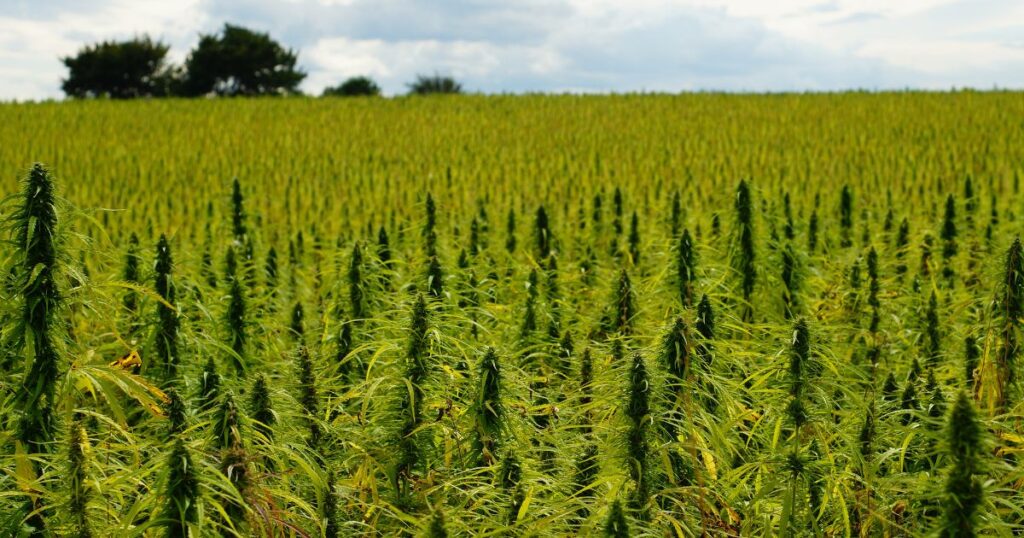As we continue to examine the evolving conversation of cannabis legislation in our blog series, today, we turn our attention to another aspect: the potential economic impact of descheduling cannabis. More states are legalizing cannabis for medicinal, recreational, or both purposes, causing a direct effect on its economic use. With the discussion around descheduling at the federal level gaining momentum, this change could have profound implications across multiple sectors and reshape the economy as a whole.
The Legislative Shift
As we explored in Part 1 of this series, descheduling cannabis entirely would remove it from the Controlled Substances Act, opening the doors to significantly greater access and federal regulation. This policy shift would not only change public perception but also profoundly impact multiple industries.
Understanding these facets is crucial as the conversation around federal cannabis policy continues to evolve. For a deeper dive into the reclassification debate, you can revisit Part 1 of this series, The Great Cannabis Classification Debate.
Cultivating a New Market in Agriculture
Cannabis descheduling would unlock significant opportunities for the agricultural sector. Farmers could legally diversify their crop rotations with hemp or marijuana, tapping into a rapidly expanding market without fear of repercussions. This opens the door to supplying the booming demand for cannabis products – from medical CBD and CBG to food, textiles, rope, and paper – leading to lucrative new avenues for growth.
Additionally, cannabis byproducts could be upcycled or recycled, contributing to sustainable practices like composting. With proper regulation, farmers could gain federal support and resources if cannabis were descheduled, fostering innovative and sustainable cultivation. As product demand grows, so will opportunities for innovation in sustainable agricultural practices and production.
Boom in Cannabis Tourism
Cannabis tourism, a growing niche within the travel industry, is poised for rapid expansion, particularly in states like California and Colorado. Nationwide descheduling could unlock a booming cannabis tourism market, attracting travelers eager to explore unique experiences.
From cultivation tours and educational retreats to dispensary visits, themed festivals, recreational activities, and cannabis-infused dining, the possibilities are endless. The cannabis tourism sector has the potential to transform travel by offering one-of-a-kind adventures for enthusiasts and curious tourists alike.
Local economies can anticipate a significant boost in tourism revenue with an increase in annual visitors drawn to these destinations, driving higher demand for accommodations.
Additionally, the direct revenue generated by cannabis businesses could fuel growth in supporting sectors like transportation, hospitality, entertainment, and event venues.
This would create a dynamic cannabis tourism ecosystem, positioning the United States as a premier destination for both national and international cannabis enthusiasts.
Expanding Employment: Growth in Job Market
Descheduling cannabis could significantly expand employment opportunities and drive economic growth within the cannabis industry. According to the 2025 Vangst Jobs Report, the legal cannabis market supported over 500,000 full-time jobs across cultivation, manufacturing, retail, and ancillary services.
Descheduling could open the door for further growth, increasing access to banking, interstate commerce, and federal support, which would allow businesses to scale faster and hire more workers.
As the industry evolves, roles in cultivation, product development, marketing, and retail are expected to increase, creating tens of thousands of new jobs.
This surge in employment has the potential to stimulate local economies, provide stable careers, and further strengthen the cannabis market as a key economic driver.
Rehabilitating Healthcare
In Part 2 of our series, “The Plant And The Pill: Why Cannabis Must Be Descheduled,” we explored how removing cannabis from Schedule I could revolutionize healthcare.
Descheduling would significantly increase accessibility for research and treatment using cannabis compounds, allowing healthcare providers to prescribe it without legal complications.
This opens the door for alternative, natural routes for pain management, anxiety relief, and more.
Ultimately, this shift promises to improve health outcomes for individuals and potentially decrease healthcare costs associated with traditional pharmaceuticals.
Green Tax Revenue Generation
The financial implications of descheduling cannabis are immense, promising game-changing revenue for both federal and state budgets. This “green tax” could fund vital public services like healthcare, education, infrastructure, and community projects.
We’re already seeing this in action; states where cannabis is legal are successfully leveraging these funds to enrich their communities.
Federally, descheduling would open the door to taxing cannabis much like alcohol and tobacco, creating a significant new income stream. (For more on this, revisit “The Great Cannabis Reclassification Debate: Who Really Wins.
Surging Investment Opportunities
Descheduling would spark a surge in investment opportunities, attracting a diverse range of investors and venture capitalists to the cannabis sector.
With reduced regulatory burdens, capital could flow more freely into cannabis startups, pioneering research initiatives, and advancements in agricultural technology.
This influx of investment would not only promote innovation but also open up new market opportunities. The result would be greater economic diversification and an environment for supporting a multitude of businesses, fueling a cycle of sustained growth and creating even more opportunities across the board.
Cannabis For Economic Development
The descheduling of cannabis has the potential to create sweeping economic opportunities across a wide range of industries, from agriculture to pharmaceuticals, and beyond. Removing cannabis from the list of controlled substances would reshape the economic landscape, bringing new jobs, businesses, and innovations to the forefront. This transformation would not only revitalize existing sectors but also stimulate the growth of entirely new industries, fostering an environment ripe for economic expansion.
However, with such significant changes come both opportunities and challenges. Adapting to this evolving landscape will require an understanding of the benefits and obstacles associated with descheduling. Policymakers, businesses, and communities must work together to navigate the complexities of regulation, market development, and public health concerns.
The transformative power of cannabis descheduling lies in its ability to unlock untapped potential within the economy. By embracing these changes, we can pave the way for a more stable and fair economic framework that encourages innovation and creates opportunities for millions.
As the conversation around cannabis policy continues to evolve, one thing is clear: its descheduling holds the promise of a more dynamic and open economy, one that reflects the changing priorities and possibilities of the modern world.















